Holidays and caregiving evoke an uneasiness that comes when we anticipate turbulence and uncertainty. The stormy holiday season is upon us and navigating caregiving during the holiday season to create something special, minus the stressful, is the goal, and that requires strategy! We can continue to prioritize our well-being during the busy season. In fact, it is essential to manage and micro-dose self-care so that we don’t become resentful and miss opportunities to make memories.
I’ll admit that some of the stress I felt around previous holidays was self-inflicted. Pre-caregiving, I loved to cook and could not accept the reality that I couldn’t entertain in usual fashion. In the early stages of caregiving, I went all out and prepared a full-scale spread. Leading up to the big meal, I had lists and prepped and prepared daily segments so that everything flowed like a symphony. There were many options that would have been more practical, less stressful, but I was stubborn.
Beyond the advice to make the meal preparation and clean-up as stress-free as possible, here are seven Sustainable Caregiving Strategies for navigating the emotions during holiday get-togethers.
1. Determine holiday objectives
When you define objectives for interactions and get-togethers, you are able to guide all activities in the direction of those objectives. When we begin with the end in mind and practice staying present, our emotions will signal a warning when we are off track and we can course-correct.
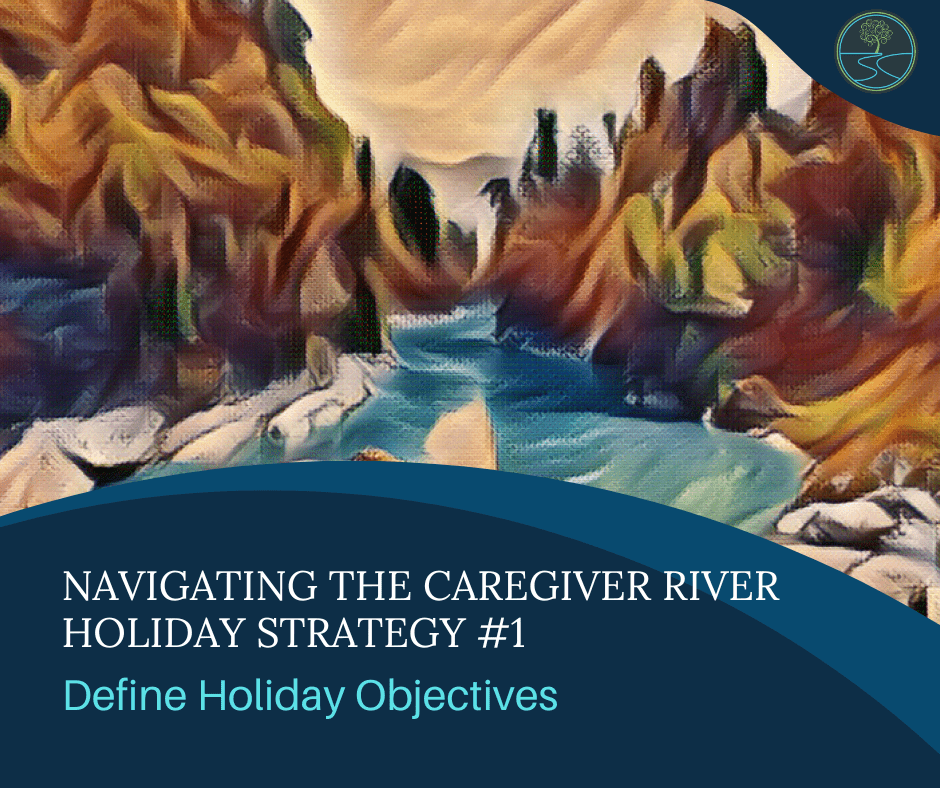
If the holidays loom as an obstacle to peace, flip the script. Ask yourself, “What are some gifts that may come from this time together?” Take a few minutes to imagine your holiday objectives fully realized. What were the positive results, lessons learned, opportunities? Before each interaction, set an intention and focus on the objectives.
Benefits:
- Defining our objectives might guide us to virtual activities that will create special moments and memories.
- When we identify our objectives and act in accordance with our values, we create the opportunity to maximize positive memories and minimize regrets.
- When we begin with the end in mind, we discover the gifts that the experience offers.
2. Make a plan for the stressful moments
Play out the anticipated stressful moments in your mind or in your journal and determine your best actions to diffuse the situation. You might set boundaries around conversation. You might prepare a reason to excuse yourself so that you may retreat to your comfy corner and employ self-care strategies such as journaling or meditating, or you might take a brief walk.
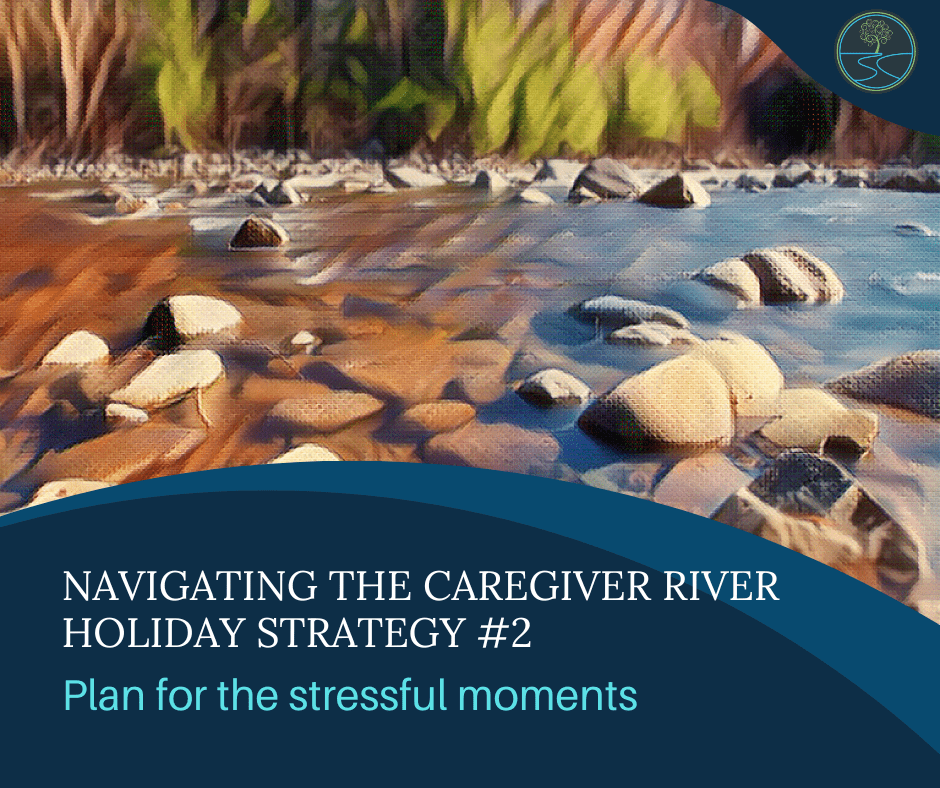
Benefits:
- With a plan in place, the worries are reduced.
- The plan offers the opportunity to act rather than react.
- Self-care breaks can provide a needed reboot.
3. Set boundaries around conversation
If you feel that the conversation is going in a controversial direction, you might share that you are uncomfortable with the conversation and ask that the subject be changed. It may be a conversation that you want to pick up later and you may ask that the topic be put on hold for another time or another day.
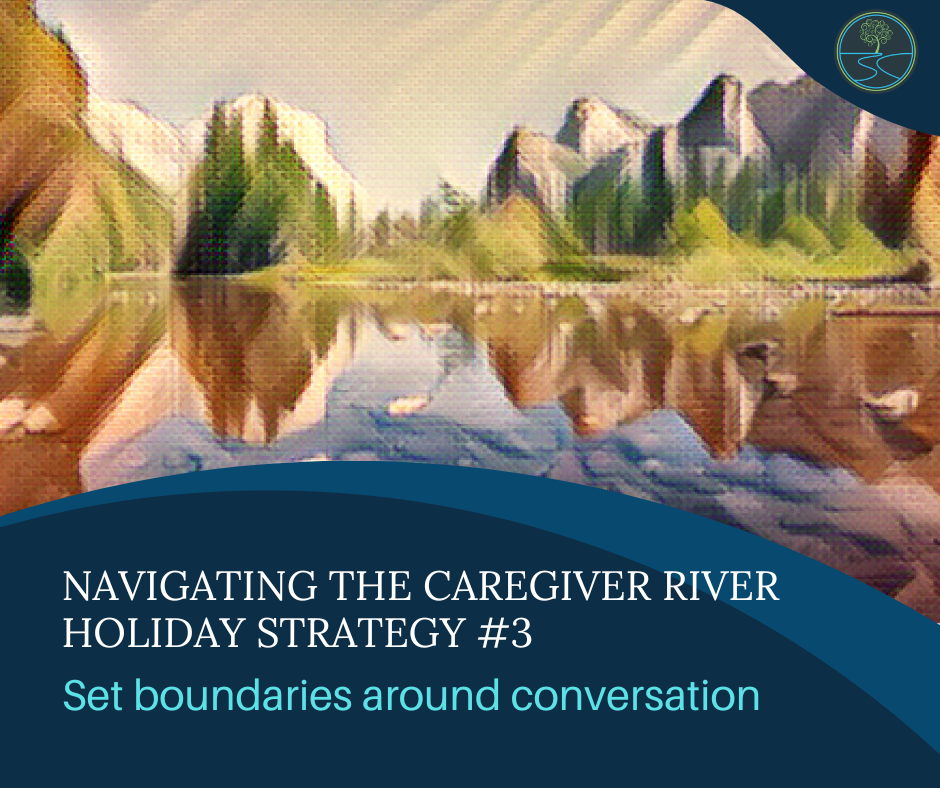
Anticipate that buttons may be pushed and prepare your calm response, which may be to simply change the subject.
Benefits:
- Setting boundaries will reduce the chance that conflict will compromise harmony.
- Postponing an important conversation will allow you time to get your thoughts organized.
4. Take preemptive self-care breaks
Create a comfy corner for planned and unplanned self-care breaks. Include calming activities, your journal, candles, pillows, and anything else that can help you reset and refocus. Here, you can take a moment to find compassion for yourself and for others.
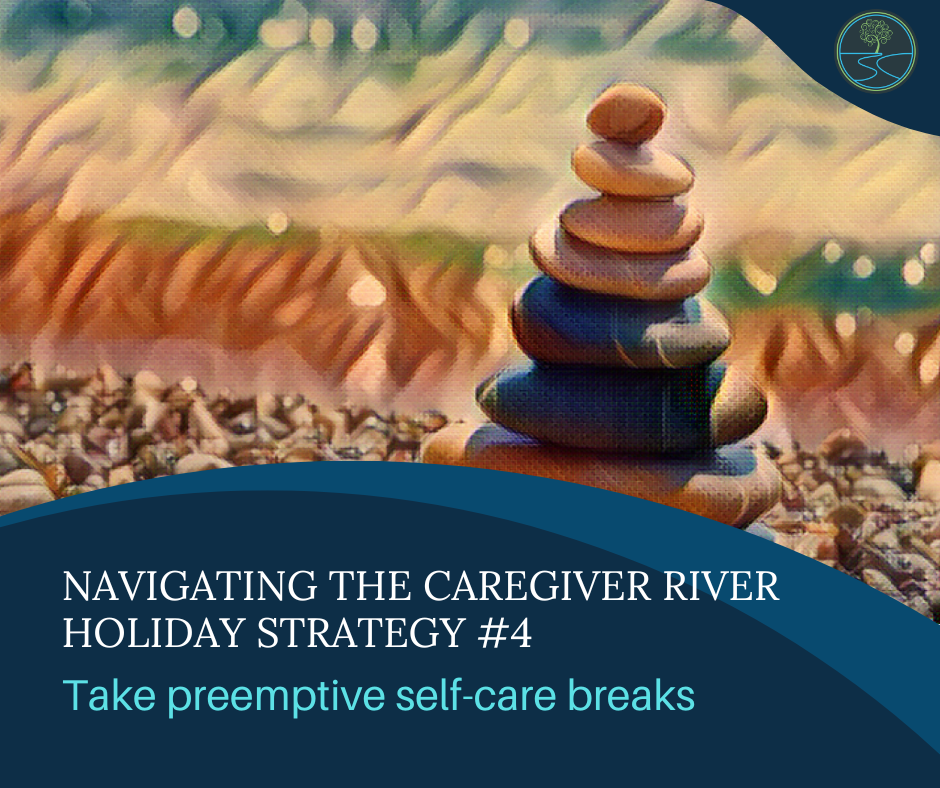
You might have reminders posted with your holiday objectives or notes to help you remember to respond with curiosity rather than anger, not take yourself too seriously, or to breathe.
Benefits:
- Scheduling comfy-corner time offers something to look forward to when you feel the stress building.
- Taking short breaks can prevent the build-up of pressure that may cause an unplanned release.
5. Forgive in advance
Caregiving is a mystery to most who have not had the experience of caring for a family member. The role and responsibilities are misunderstood and this makes input ripe for conflict. Plan a generic appreciative, positive response for insensitive comments and try not to dwell on the disconnect. Write about it in your journal and share the details later with support group members.
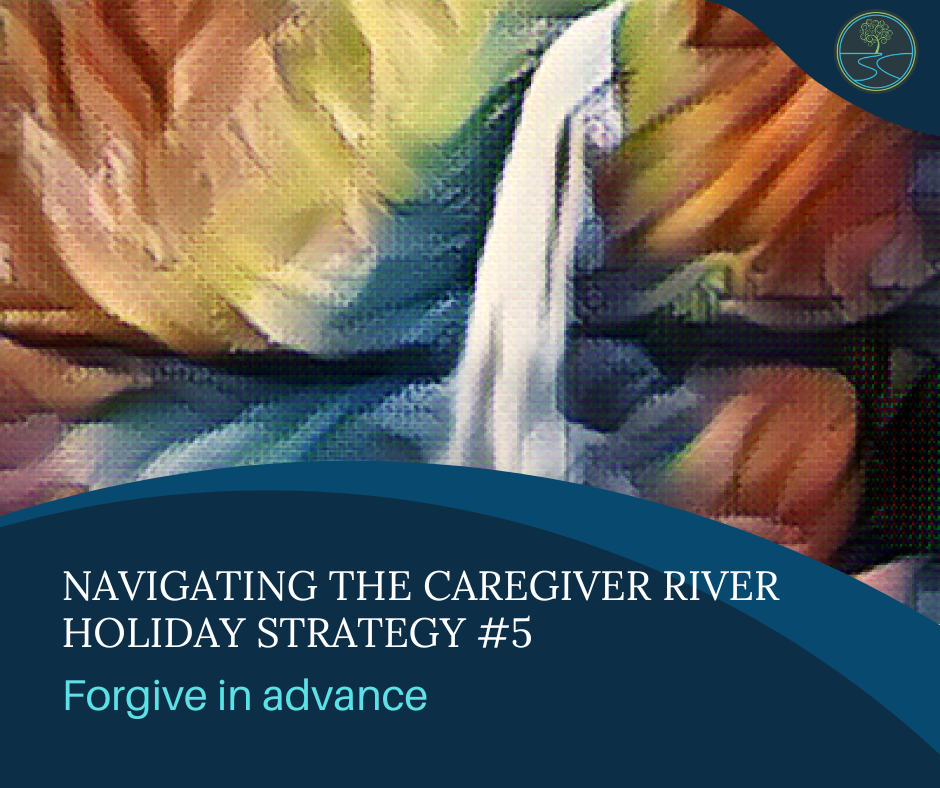
Consider all of the ways that family members may support future care efforts and be open to options other than direct involvement in care. The pandemic has limited the outside help that many of us previously received, but there are still ways that siblings or family members may help lighten the caregiving load. Forgiveness can free our minds to explore new options.
Benefits:
- Forgiveness, in the moment, will help you maintain relationships that will extend beyond the caregiving years.
- Minimizing conflict will allow you to focus on and achieve your holiday objectives.
6. Have a plan to vent
Know when your next support group meeting is scheduled and know that you will be able to share your frustrations with fellow caregivers who get it. Journal what irks you and set the frustrations aside.
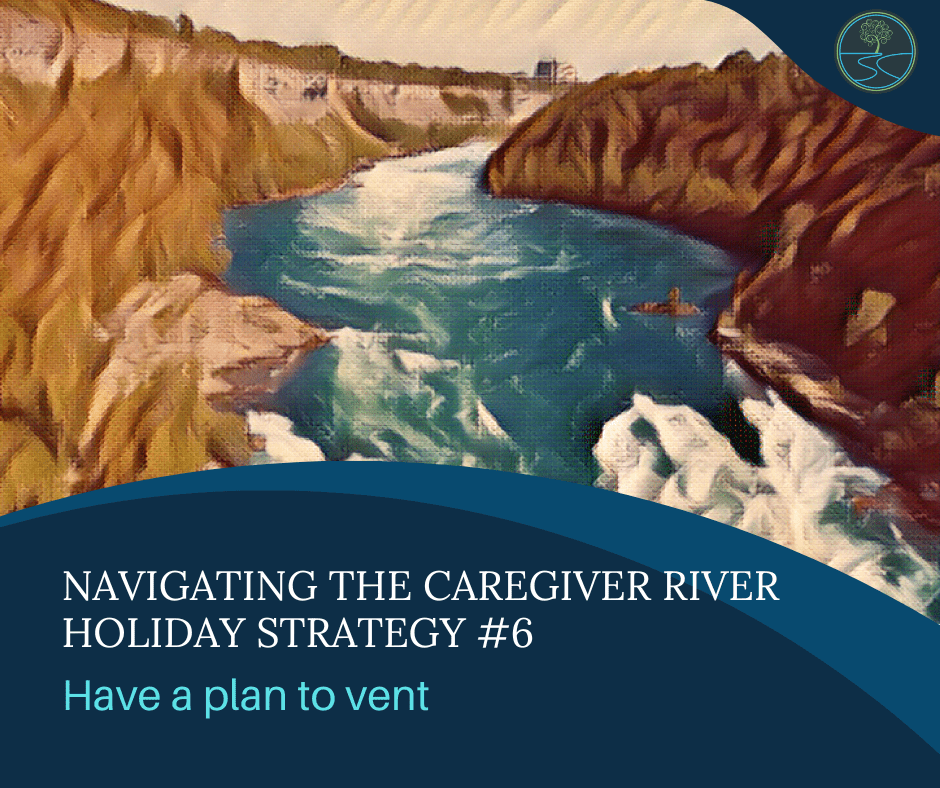
Awareness that you will have time to share and process frustrations later may help you view the interaction in a different light.
- Knowing that you will be able to share frustrations at a later date can help you refocus on the present and your holiday objectives.
- Journaling during your self-care breaks can help you move past the frustration.
7. Protect crucial routines by enlisting help
Holidays are routine disrupters. Anticipate what routines may be challenging to maintain and make a plan to protect the at-risk routines. Set timers, delegate, and enlist the help of your guests.
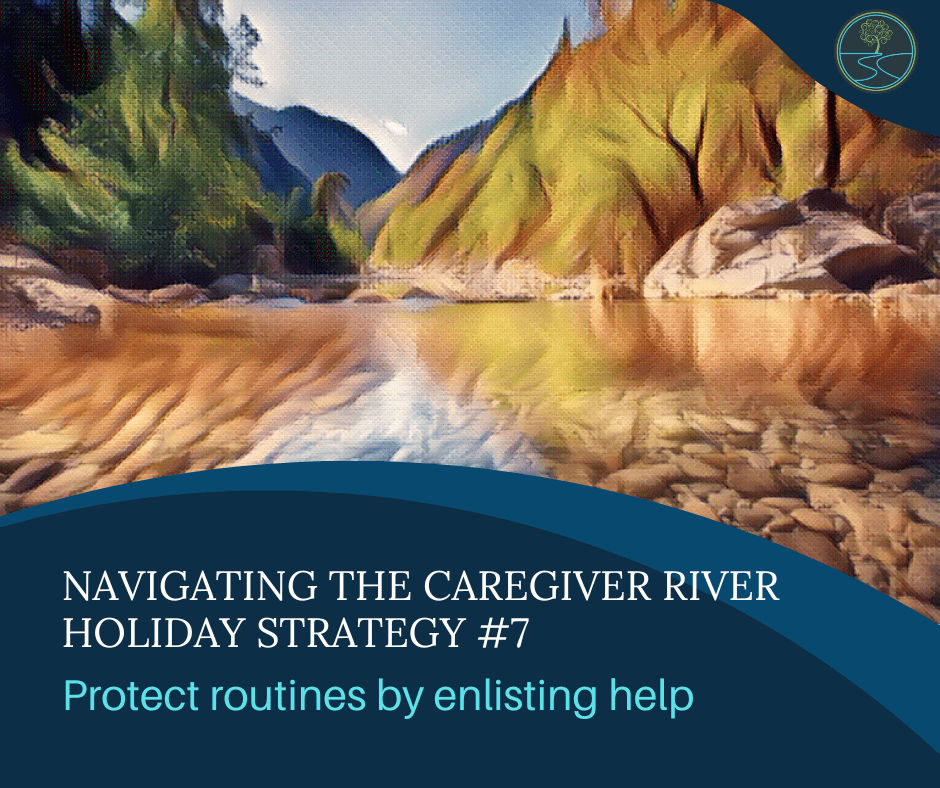
It may be that you simply want to know that your family member isn’t left unattended. Let visitors tag team chat time. Leave a box of old photos or mementos nearby as conversation starters.
Benefits:
- You can be confident that important care needs will be addressed.
- Family members will receive the gift of providing help.
Navigating the Caregiver River: A Journey to Sustainable Caregiving is available on Amazon. Also, check out the Self-Caregiving Strategies Podcast. Begin to build your personal Sustainable Caregiving foundation.
Schedule Theresa Wilbanks to speak on caregiving and empower the caregivers in your workplace or community with the 12 Sustainable Caregiving Strategies.
Advice offered is for general information only; please contact your healthcare team, legal or financial advisors to guide your particular situation.
Wishing you a happy, healthy holiday season!

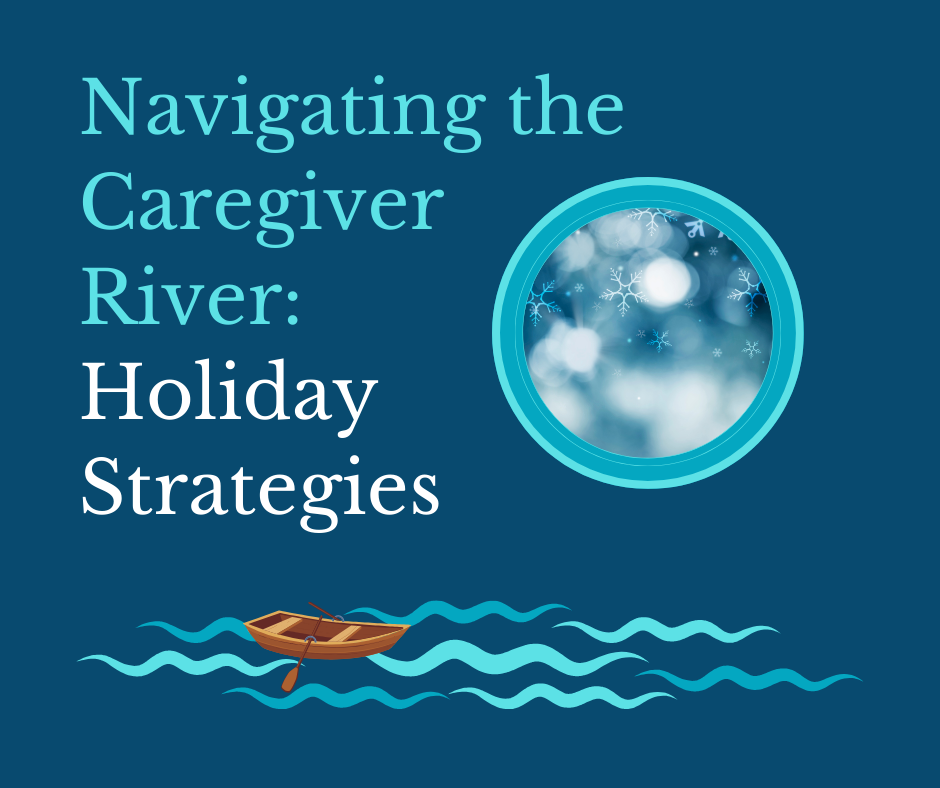
Pingback: Holidays during the COVID19 pandemic is THE time for caregivers to let go of exhausting traditions. – Advocate for Mom & Dad